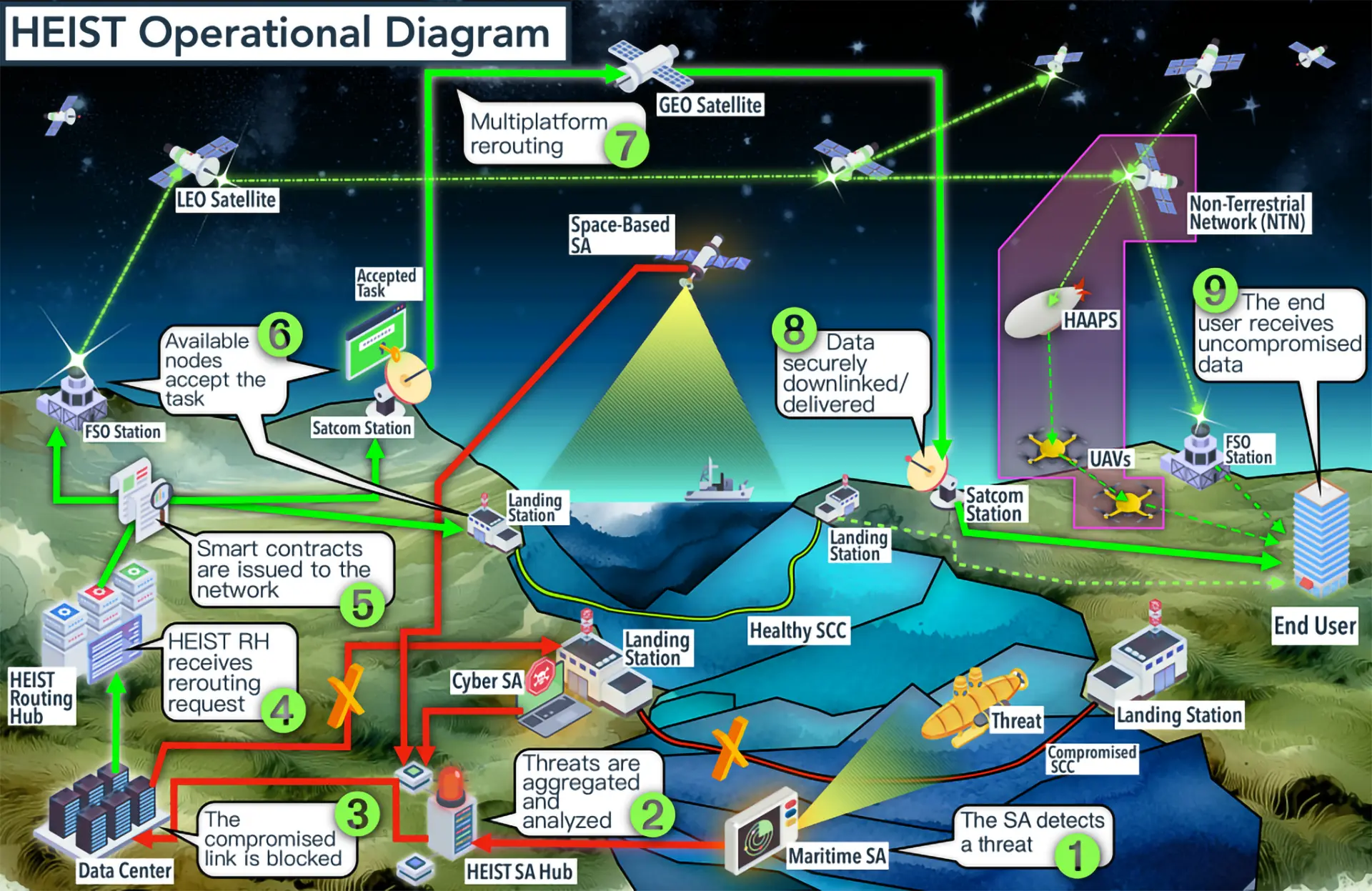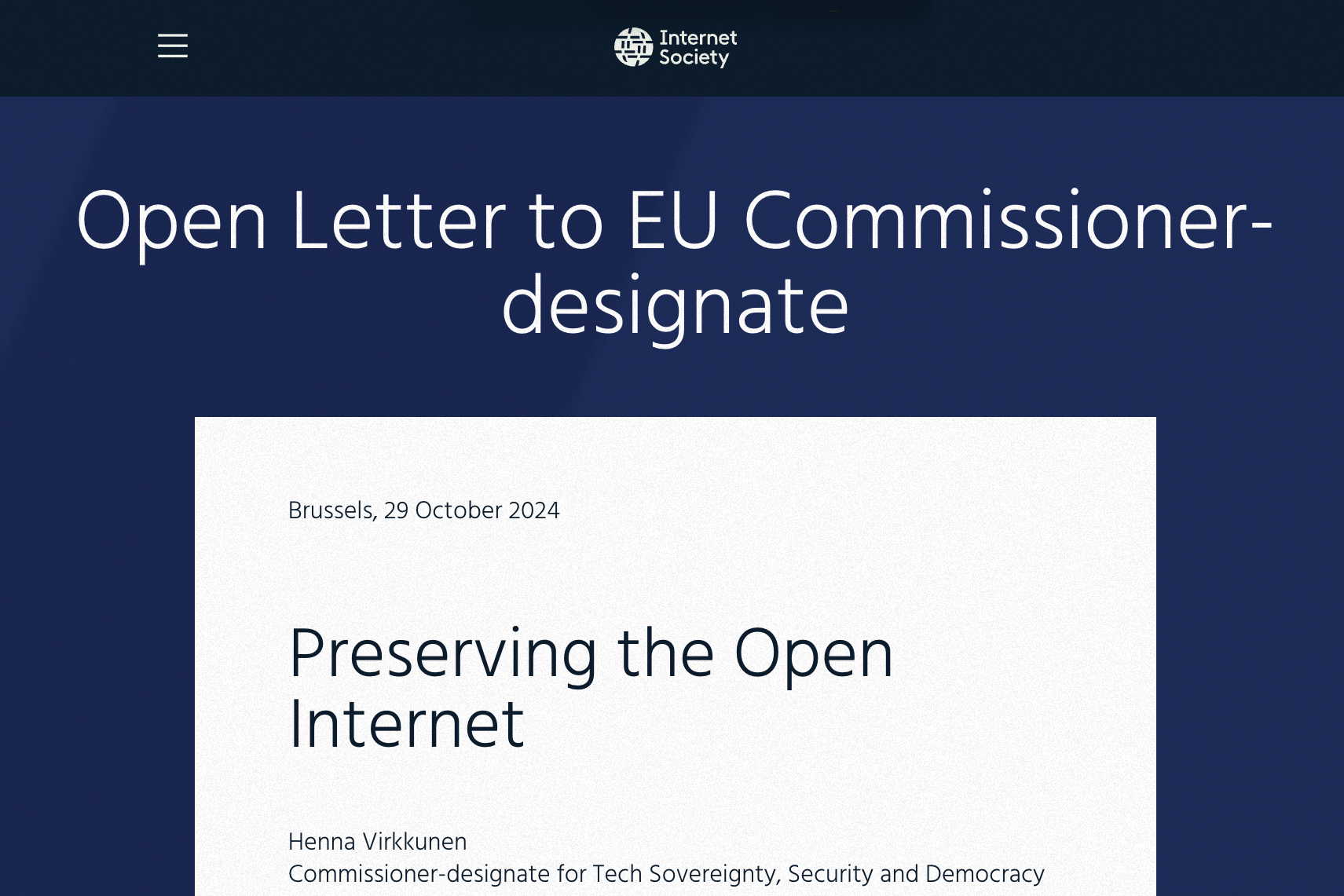

 After several delays due to bad weather, Amazon's Project Kuiper finally launched its first batch of low-orbit broadband satellites on April 28. The company says it is in communication with all 27 new satellites. Amazon used a United Launch Alliance (ULA) Atlas V rocket launched from Cape Canaveral. Amazon is under pressure to get the launches going and has a commitment to the FCC to launch 1,618 satellites by July 2026.
After several delays due to bad weather, Amazon's Project Kuiper finally launched its first batch of low-orbit broadband satellites on April 28. The company says it is in communication with all 27 new satellites. Amazon used a United Launch Alliance (ULA) Atlas V rocket launched from Cape Canaveral. Amazon is under pressure to get the launches going and has a commitment to the FCC to launch 1,618 satellites by July 2026.
 CTIA, the trade association for cellular companies, published a recent blog titled, "The Looming Spectrum Crisis". The blog quotes a study from Accenture that concludes that a lack of spectrum for 5G is reaching a point of crisis. The Accenture study says that cellular networks will be unable to meet nearly one-fourth of peak-period requests for connection as soon as 2027.
CTIA, the trade association for cellular companies, published a recent blog titled, "The Looming Spectrum Crisis". The blog quotes a study from Accenture that concludes that a lack of spectrum for 5G is reaching a point of crisis. The Accenture study says that cellular networks will be unable to meet nearly one-fourth of peak-period requests for connection as soon as 2027.
 The marketing area of the broadband industry spends a lot of time convincing folks that the most important part of a broadband product is download speed. This makes sense if fiber and cable are competing in a market against slower technologies. But it seems like most advertising about speed is to convince existing customers to upgrade to faster speeds. While download speed is performance, the industry doesn't spend much time talking about the other important attributes of broadband.
The marketing area of the broadband industry spends a lot of time convincing folks that the most important part of a broadband product is download speed. This makes sense if fiber and cable are competing in a market against slower technologies. But it seems like most advertising about speed is to convince existing customers to upgrade to faster speeds. While download speed is performance, the industry doesn't spend much time talking about the other important attributes of broadband.
 Today, the Supreme Court will consider a challenge to the universal service subsidy program established soon after the introduction of telephone service by the AT&T Bell System and later officially adopted by the FCC as mandated by a 1996 law.1, 2 Universal service funding supports access to telephone and broadband service by subscribers in rural locales that commercial ventures will not serve absent a subsidy.
Today, the Supreme Court will consider a challenge to the universal service subsidy program established soon after the introduction of telephone service by the AT&T Bell System and later officially adopted by the FCC as mandated by a 1996 law.1, 2 Universal service funding supports access to telephone and broadband service by subscribers in rural locales that commercial ventures will not serve absent a subsidy.
 In a 2024 end-of-year memo, Gary Bolton of the Fiber Broadband Association said that FBA had partnered with the consulting firm Cartesian to look at the pros and cons of Starlink in the U.S. FBA says that report shows that Starlink currently has 1.4 million customers in the U.S., and with the current satellite constellation has the capacity to serve 1.7 million customers.
In a 2024 end-of-year memo, Gary Bolton of the Fiber Broadband Association said that FBA had partnered with the consulting firm Cartesian to look at the pros and cons of Starlink in the U.S. FBA says that report shows that Starlink currently has 1.4 million customers in the U.S., and with the current satellite constellation has the capacity to serve 1.7 million customers.
 Fiber networks are getting a surprising new route: water pipes. An innovative technology promises faster, cheaper installations while avoiding traditional construction hurdles. However, concerns about water utility cooperation and repair challenges remain. This approach could revolutionize fiber deployment in municipal and greenfield communities, but its adoption hinges on proving its reliability and safety.
Fiber networks are getting a surprising new route: water pipes. An innovative technology promises faster, cheaper installations while avoiding traditional construction hurdles. However, concerns about water utility cooperation and repair challenges remain. This approach could revolutionize fiber deployment in municipal and greenfield communities, but its adoption hinges on proving its reliability and safety.
 Strand Consult published an article on its website that makes numerous predictions for broadband and related industries in 2025 and compares them to the company's 2024 predictions. It's fascinating and well worth reading. There is one prediction in particular that got me thinking. In its 2024 predictions, Strand Consult compared Elon Musk's Starlink to Jeff Bezos' Kuiper and said that Bezos had opened a burger bar while Musk runs an interstellar McDonald's. The 2025 observation agrees with that assessment.
Strand Consult published an article on its website that makes numerous predictions for broadband and related industries in 2025 and compares them to the company's 2024 predictions. It's fascinating and well worth reading. There is one prediction in particular that got me thinking. In its 2024 predictions, Strand Consult compared Elon Musk's Starlink to Jeff Bezos' Kuiper and said that Bezos had opened a burger bar while Musk runs an interstellar McDonald's. The 2025 observation agrees with that assessment.
 In April 2020, The Chinese State Council's executive meeting declared information technology, including satellite Internet, an important part of the "new technology," and in October, China applied for Guowang, a 12,992-satellite Internet service constellation. Subsequently, a few Guowang test satellites were launched, and two other large Chinese constellations were announced, and one, Thousand Sails, already has 54 satellites in orbit. (Thousand Sails launches have had problems with debris and orbit raising, which attests to the immaturity of the Chinese space industry). Finally, Guowang has launched its first production satellites.
In April 2020, The Chinese State Council's executive meeting declared information technology, including satellite Internet, an important part of the "new technology," and in October, China applied for Guowang, a 12,992-satellite Internet service constellation. Subsequently, a few Guowang test satellites were launched, and two other large Chinese constellations were announced, and one, Thousand Sails, already has 54 satellites in orbit. (Thousand Sails launches have had problems with debris and orbit raising, which attests to the immaturity of the Chinese space industry). Finally, Guowang has launched its first production satellites.
 The debate surrounding network usage fees in Brazil has intensified following the approval of Bill 469/2024 by the House of Representatives' Communications Committee in early December 2024. This bill prohibits telecommunications operators from charging internet companies based on data traffic. While this is merely a preliminary step in a lengthy legislative process, it signals that proposals from telecom companies to implement network usage fees are unlikely to gain traction.
The debate surrounding network usage fees in Brazil has intensified following the approval of Bill 469/2024 by the House of Representatives' Communications Committee in early December 2024. This bill prohibits telecommunications operators from charging internet companies based on data traffic. While this is merely a preliminary step in a lengthy legislative process, it signals that proposals from telecom companies to implement network usage fees are unlikely to gain traction.
 There is a lot of speculation that Starlink is positioned to get a lot more federal subsidy from the BEAD grant program. There are a few things that have to happen for that to come to pass, but that is not the only news about Starlink these days. Starlink announced in September that it reached four million customers worldwide. What is most impressive about that announcement is the rate of growth, with the company just hitting the three million customer mark in May of 2024.
There is a lot of speculation that Starlink is positioned to get a lot more federal subsidy from the BEAD grant program. There are a few things that have to happen for that to come to pass, but that is not the only news about Starlink these days. Starlink announced in September that it reached four million customers worldwide. What is most impressive about that announcement is the rate of growth, with the company just hitting the three million customer mark in May of 2024.
 Starlink launched maritime service in July 2022, and by January 2023 Elcome International LLC, a maritime technology solution provider since 1970, had installed multi-antenna Starlink Maritime arrays on two super yachts with more than 100 passengers and crew. Elcome launched its Starlink maritime service in May 2024 and now has over 3,000 terminals under management.
Starlink launched maritime service in July 2022, and by January 2023 Elcome International LLC, a maritime technology solution provider since 1970, had installed multi-antenna Starlink Maritime arrays on two super yachts with more than 100 passengers and crew. Elcome launched its Starlink maritime service in May 2024 and now has over 3,000 terminals under management.
 I recently saw that AT&T is offering a $10,000 reward to anybody who provides information that leads to the arrest and conviction of people stealing copper wiring. The particular announcement is related to a recent theft of copper in South Dallas, Texas, but there have been numerous other thefts. This is not a small problem, and the estimated value of stolen telephone copper is between $1.5 and $2 billion annually.
I recently saw that AT&T is offering a $10,000 reward to anybody who provides information that leads to the arrest and conviction of people stealing copper wiring. The particular announcement is related to a recent theft of copper in South Dallas, Texas, but there have been numerous other thefts. This is not a small problem, and the estimated value of stolen telephone copper is between $1.5 and $2 billion annually.
 In the coming months, we're set to witness the largest investment in America's digital infrastructure in history: $42.5 billion that should be a true lifeline for millions of Americans struggling with slow, unreliable, or nonexistent internet connections. But as with any massive government spending program, the devil is in the details - and Republican lawmakers, led by Texas Senator Ted Cruz, are doing their best to ensure those details work against their own constituents.
In the coming months, we're set to witness the largest investment in America's digital infrastructure in history: $42.5 billion that should be a true lifeline for millions of Americans struggling with slow, unreliable, or nonexistent internet connections. But as with any massive government spending program, the devil is in the details - and Republican lawmakers, led by Texas Senator Ted Cruz, are doing their best to ensure those details work against their own constituents.
 The City of Shanghai entered the low-orbit broadband satellite market. Shanghai Spacecom Satellite Technology (SSST) launched 18 satellites in August and a second batch of 18 satellites in October. The satellites are being branded as Qianfan, or 'Thousand Sails.' SSST satellites are being launched by the China Aerospace Science and Technology Corporation (CASC) using the Long March 6A rocket.
The City of Shanghai entered the low-orbit broadband satellite market. Shanghai Spacecom Satellite Technology (SSST) launched 18 satellites in August and a second batch of 18 satellites in October. The satellites are being branded as Qianfan, or 'Thousand Sails.' SSST satellites are being launched by the China Aerospace Science and Technology Corporation (CASC) using the Long March 6A rocket.
 In the wake of the election, sweeping policy shifts in the information economy are set to accelerate. Expect fast-tracked FCC reforms, Starlink subsidies, and AI-driven oversight to redefine media, tech, and regulatory landscapes. From relaxed antitrust to intensified media control, these eleven reversals signal a move toward deregulation and Chicago School libertarianism, with lasting impacts on U.S. markets and governance.
In the wake of the election, sweeping policy shifts in the information economy are set to accelerate. Expect fast-tracked FCC reforms, Starlink subsidies, and AI-driven oversight to redefine media, tech, and regulatory landscapes. From relaxed antitrust to intensified media control, these eleven reversals signal a move toward deregulation and Chicago School libertarianism, with lasting impacts on U.S. markets and governance.
 Lack of Broadband Competition Leads to Higher Prices in Most U.S. Counties
Lack of Broadband Competition Leads to Higher Prices in Most U.S. Counties Meta’s Undersea Ambitions: A Cable to Power the AI Future
Meta’s Undersea Ambitions: A Cable to Power the AI Future Baltic Sea Infrastructure Targeted Amid Rising Geopolitical Tensions
Baltic Sea Infrastructure Targeted Amid Rising Geopolitical Tensions NATO’s Orbital Lifeline: A Backup Plan for the Internet
NATO’s Orbital Lifeline: A Backup Plan for the Internet Europe Seeks Space Independence with €10.6bn Iris² Satellite Network
Europe Seeks Space Independence with €10.6bn Iris² Satellite Network Meta’s $10 Billion Plan to Build the World’s Largest Subsea Cable Network
Meta’s $10 Billion Plan to Build the World’s Largest Subsea Cable Network EU Internet Advocates Push Back Against Telecom “Fair-Share” Fees
EU Internet Advocates Push Back Against Telecom “Fair-Share” Fees FCC Approves Starlink for Direct-to-Cell Service in Hurricane-Stricken North Carolina
FCC Approves Starlink for Direct-to-Cell Service in Hurricane-Stricken North Carolina Chinese Company Launches First Satellites for Massive Network to Rival Starlink
Chinese Company Launches First Satellites for Massive Network to Rival Starlink Yemen’s Submarine Cable Repairs Hindered by Political Dispute
Yemen’s Submarine Cable Repairs Hindered by Political Dispute Scientists Set New Internet Speed World Record: 4.5 Million Times Faster Than Average Broadband
Scientists Set New Internet Speed World Record: 4.5 Million Times Faster Than Average Broadband